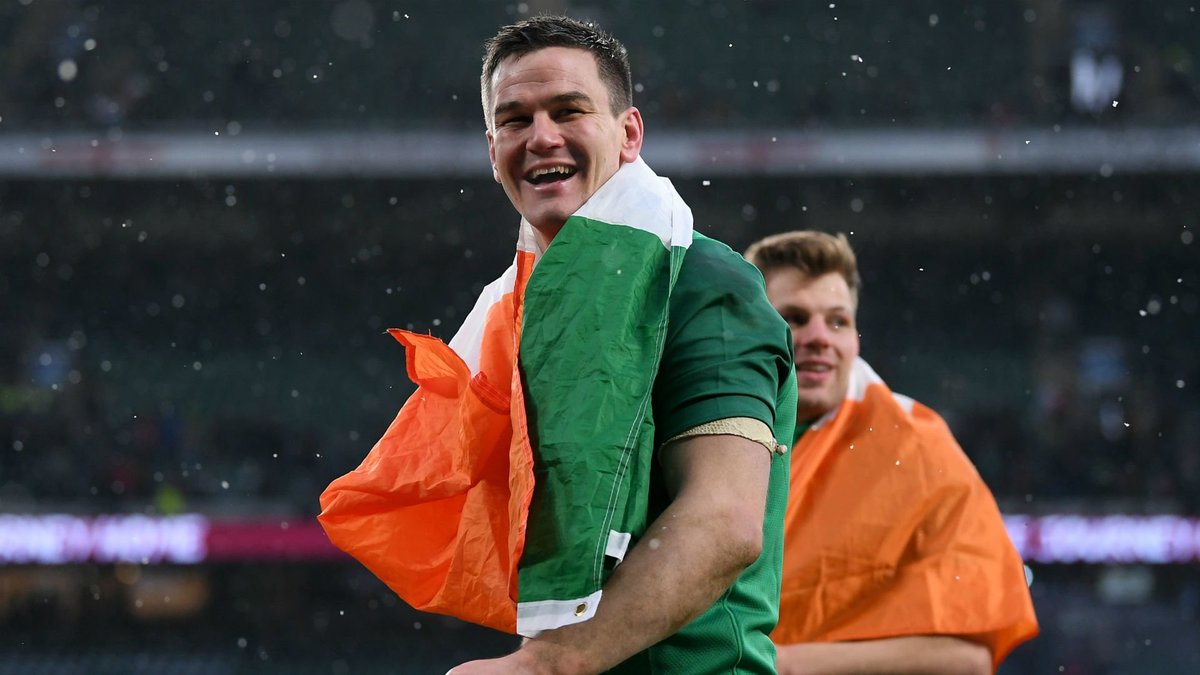The early retirements of the likes of Jamie Heaslip, Luke Fitzgerald and Kevin McLaughlin provided Ireland with added motivation to wrap up the Grand Slam against England on Saturday, according to Jonathan Sexton.
The Irish and Leinster flyhalf also claims ‘luck’ played a part in England’s long winning streak.
Ireland triumphed 24-15 at Twickenham to clinch a third Six Nations clean sweep and a first since 2009.
Heaslip had to retire last month due to a back injury sustained in the warm-up for last year’s clash with England in Dublin, while the careers of fellow Ireland internationals Fitzgerald and McLaughlin were also curtailed on medical advice.
Sexton, whose drop goal with the final act of Ireland’s opening fixture against France set the Grand Slam ball rolling, said he would savour the moment all the more having seen international colleagues robbed of their involvement in the sport.
“You think about those guys,” he told reporters. “I got a lot of texts from those guys before the game. I got some very special texts from different people that I’ve played with over the years.
“But yeah, those guys you wish they were here with you. I’m sure they’re very proud, especially the guys that were injured this year, who played a part in the campaign – guys like Robbie [Henshaw].
“He’s as much a part of it as the guys who played five games.
“But you do think about those guys a lot.”
Ireland's Grand Slam. Rugby's Greatest Championship.@SixNationsRugby #NatWest6Nations #TeamOfUs #ShoulderToShoulder pic.twitter.com/0bPC2dwR4Y
— Irish Rugby (@IrishRugby) March 17, 2018
Ireland’s achievement also represented a first Triple Crown for Sexton, who joked about his early days in the set-up alongside some of the team’s all-time greats.
“I remember sitting in the changing room years ago before playing Scotland at Croke Park and Declan Kidney talking about how Triple Crowns are hard to come by,” he commented.
“I looked around and saw Ronan [O’Gara], Brian [O’Driscoll and Paul [O’Connell] throw their eyes to heaven – they had five or six of them at that stage!
“Definitely at that stage in my career I didn’t think that all these years later I’d still be trying to win one, but when we won the French and Italian games, we said ‘Right, now go and try to win the Triple Crown’. We tried to break it down like that.
“I would say it’s a big high point to my career, if not the best. It’s a very strange feeling.”
The result left England with a third successive defeat and a first home loss since Eddie Jones took charge in the wake of a disastrous 2015 Rugby World Cup.
Jones previously led England to an 18-match winning run, equalling a record held by New Zealand but ended – as it was for the All Blacks – by Ireland.
“When they were winning on that streak I think they were getting little bits of luck. They’d say so themselves,” Sexton added.
“When they played Australia here last year in November, Australia had a couple of tries chalked off when on other days they might have been given.
“Suddenly those don’t go your way. You’re still the same team, you still work as hard and I’m sure they’ll bounce back.”









































